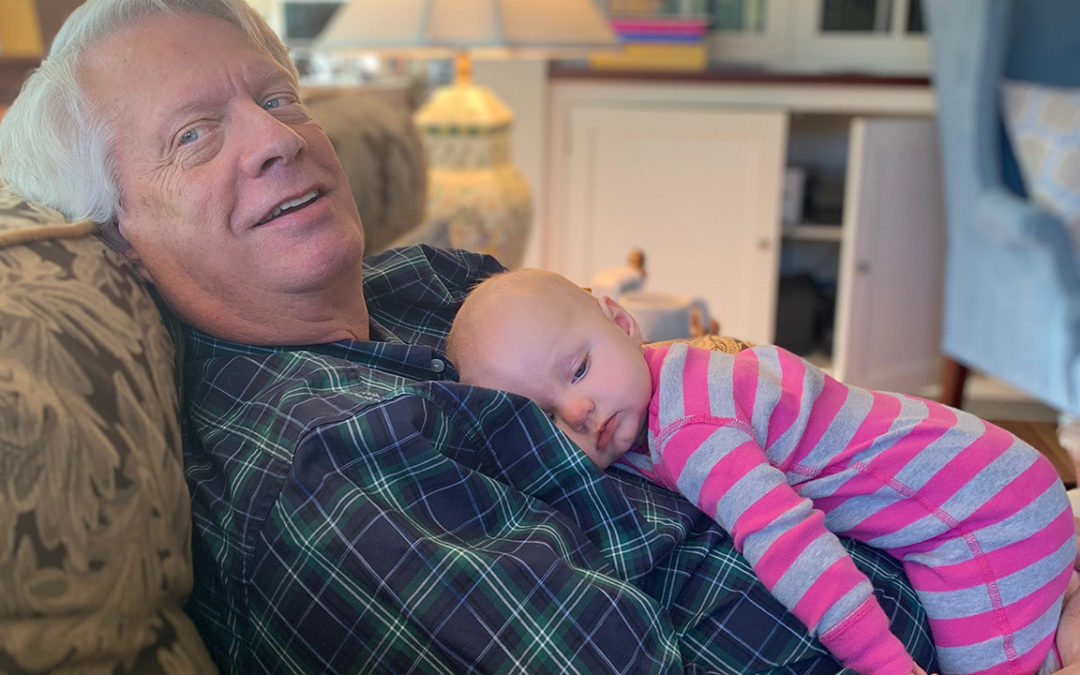So this is what an old progressive thinks he learned from his granddaughter:
Last Sunday afternoon, before my visiting daughter and son-in-law went off to the 8:00 PM Ravens/Patriots game, I volunteered for the early morning shift of “baby duty” the following morning, so they could sleep a little later the next morning.
When Ann, my granddaughter, woke up at 6:00 AM, I fed her her first bottle of the day and we settled into the couch to read a book as we listened to a little Oscar Peterson.
Ann is a very mellow child — unless she is bored. When she is bored, she will cry a little until you introduced her to something new for her to look at or listen to.
When reading books finally didn’t do the trick, we cruised the house looking at artwork and the photographs on the shelves. She was verbal in her approval and remarkable in her concentration.
After a while, we returned to the couch and she bounced gently on my knee to Oscar’s rhythms until she fell asleep in my arms, her head on my chest.
Although we have known each other for her first six months, that morning something had changed. I had listened to her and she had trusted me enough to go to sleep as I was holding her.
We all live under a set of laws which are enforced in different ways. The government issues tickets for speeding or going through a stop sign, but the rules of the road are enforced by indignant drivers who honk their horns.
Nationally, we are punished for violations of federal laws or state laws, but in much of our country also, for violations of “political correctness.” The first two are enacted by our legislatures and interpreted by our courts. The third is the law of a progressive culture, and the rules of this road are now also enforced by the indignant. For them, it is as it is on the highway. There is no appeal for those who they judge to violate these rules, other than an extended middle finger.
Many of the front runners in the Democratic party, with the best of intentions, seek to codify many of these rules. They are indignant at those who wrongly disagree about America’s history of immigration, climate change, universal healthcare, women’s rights, and the rights of gay and transgender people. They have passionate supporters who look down their nose at the “undereducated,” who do not understand the new and better rules of the road.
When Alice and Rick, my natural children, were born they were “my” children and I demanded that I hold them almost immediately after their birth. There was a genetic bond from the start. But with my granddaughter, she is once removed and it was up to me to earn my place in “her” family. With both, I was equally as paternalistic and well-intended, but the relationship was different.
It is easy for a political party to advocate the “obvious” good intended for our country and its people, but how that message is received is the issue, particularly when these rules are seen to threaten the livelihood, safety, and patriotic beliefs of the unconverted.
Further, this intolerance makes it easy to drive a wedge between the two sides and demonize the believers in order to polarize the fearful.
The most effective advocacy starts with listening and empathy if you want others to be part of your family and you want to be part of theirs.
My granddaughter had a voice, if not words, and I had to win her respect and trust. If I had imposed my effort to teach her reading, or required she love the genius of Oscar Peterson, that trust would never have developed as it did.
We are not enemies. We are Americans that disagree. Trusting enough to listen may get us what we want.
